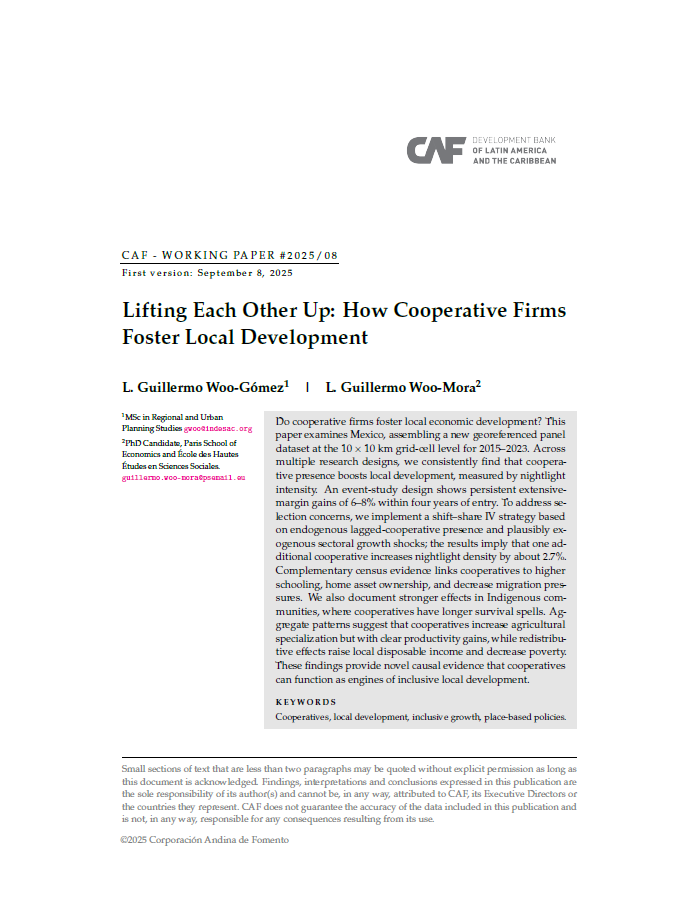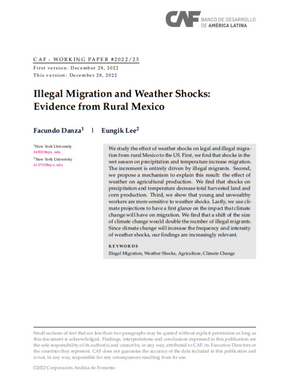Agricultural Distortions and International Migration
Resumo
International migration is a recurrent phenomenon that has grown rapidly over the past two decades. This paper examines the role of agricultural distortions in shaping emigration patterns and influencing productivity and welfare in developing countries, using Guatemala as a case study. We develop a theoretical framework where household members can work in agriculture, non-agriculture, or emigrate, and calibrate the model combining detailed micro and aggregate data. Our model identifies two key channels through which agricultural distortions affect migration and productivity: a first channel where distortions increase emigration among more productive agents, reducing aggregate productivity, and a second channel where distortions drive factor misallocation, lowering incomes and increasing overall emigration.
Assunto
País / Región
Data
2025-07-31Cite esta publicação
Item que pertence à coleção
Autor
Britos, BraulioHernandez, Manuel A.
Trupkin, Danilo R.
Items Relacionados
Lifting Each Other Up: How Cooperative Firms Foster Local Development
Do cooperative firms foster local economic development? This paper examines Mexico, assembling a new georeferenced panel dataset at the 10 × 10 km ...
Illegal Migration and Weather Shocks: Evidence from Rural Mexico
We study the effect of weather shocks on legal and illegal migration from rural Mexico to the US. First, we find that shocks in the wet season on ...
Input-output linkages and sector-specific distortions in the Latin American development problem
In this paper, I analyze the Latin American development problem using a model with input-output linkages, sectorial productivity gaps, and sector-specific ...




